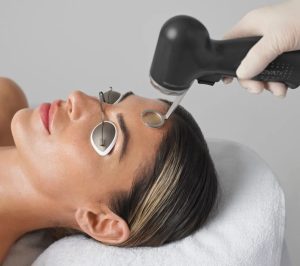Laser skin toning is a non-invasive cosmetic procedure that uses laser waves to improve the appearance of the skin by reducing the signs of aging, pigmentation, and dullness of skin.The procedure works by stimulating collagen production, rearrangement of collagen bundles and redistribution of melanin in the skin, which can help to improve skin texture and tone.
During a laser skin toning procedure, a laser is directed onto the skin, delivering pulses of light that penetrate deep into the skin. This stimulates collagen production and encourages the growth of new skin cells, which can improve the overall appearance and health of the skin.
Advantages of laser skin toning include:
- Improved skin texture and tone
- Reduced appearance of fine lines and wrinkles
- Reduction in the appearance of pigmentation and age spots
- Non-invasive procedure with minimal downtime
- Safe for most skin types and colors.
Nd:YAG laser for skin toning:
Nd:YAG laser is one of the lasers commonly used therapy for skin toning, as it can stimulate collagen production, decreases the melanin production and improve the overall texture and tone of the skin. The laser works by emitting a beam of light that penetrates into the skin, targeting the deeper layers where collagen is produced and redistributes the melanocytes leading to improvement in skin color. The heat from the laser causes controlled damage to the skin, which triggers the body's natural healing process.
The Nd:YAG laser is a non-ablative laser, which means it does not remove the top layer of skin, and is considered safe for most skin types. The laser can be used to treat a range of skin concerns, including fine lines, wrinkles, and uneven skin texture, pigmentation, melasma ,freckles, dullness of skin.
During the procedure, a topical numbing cream is applied to the skin for 30 to 40 minutes to minimize any discomfort. The laser is then directed onto the skin, and patients may feel a mild heat sensation during procedure.
After the procedure, patients may experience mild redness and swelling, which typically subsides within a few days. It's important to avoid sun exposure and to use a good moisturizer and broad-spectrum sunscreen to protect the skin after the procedure.


